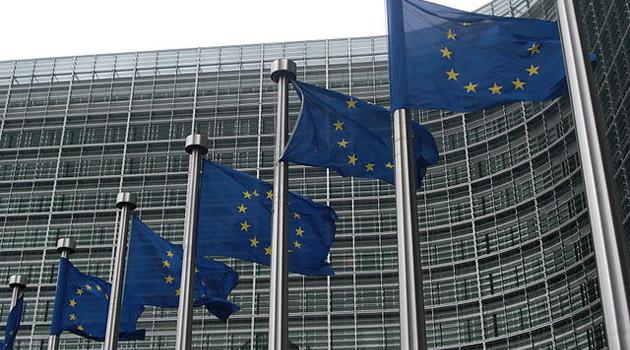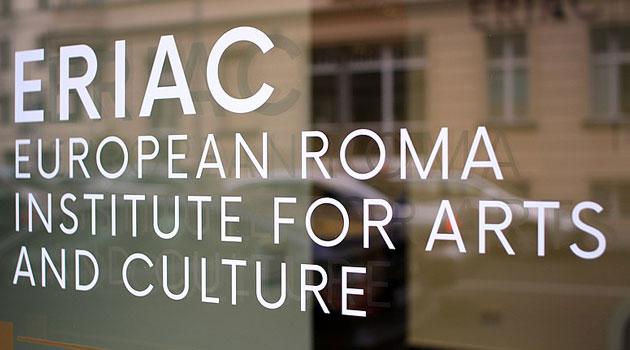European Roma to demonstrate in Brussels against discrimination, ineffective financing, poverty

Representatives of Romani communities from Belgium, Britain, the Czech Republic, France, Hungary, Slovakia and other states will travel to Brussels on Monday, 8 July to demonstrate in front of the European Parliament at 11 AM. Štefan Pongo, one of the main organizers of the demonstration, announced the plans to Romea.cz.
Those protesting are bothered by the fact that European money sent to the Member States to combat poverty is going astray into the pockets of private individuals while the situations of tens of thousands of Romani people living in poverty are not being changed for the better. They further point to growing radicalization in society and warn against the racial hatred that members of their ethnicity have repeatedly been subjected to in the past.
The demonstrators are proposing the establishment of a Romani Congress to which Romani men and women from all EU countries would be elected. The event will last several hours, and organizers say it is meant to be attended by hundreds of people from different corners of Europe.
“During the demonstration, in addition to political speeches, there will be live Romani music performances accompanying dancers in traditional costume. The organizers will meet with MEP Tomáš Zdechovský and deliver their demands to him. The press conference will be at 10:30 on Place de Luxembourg,” Pongo told Romea.cz.
Pongo is a much-followed Romani blogger and truck driver who was moved to organize the event by a recent visit to eastern Slovakia. “Thousands of Romani families are living there in horrible conditions without gas hookups, or local garbage pickup, or running water. The children are playing together among rats, the ill have no access to medical care. That is actually what it looks like in the 21st century in the world’s richest economy?” Pongo asked.
The organizer lives with his family in Manchester, England, where he moved 15 years ago from the Czech Republic to escape racial discrimination. According to him, he and fellow organizer Petr Torák are most bothered by the fact that the European financing that is designed to aid people living in poverty is being abused to artificially keep that poverty in place.
“This is a vicious circle. Impoverished people are exploited as bait by those who say ‘Look, there’s poverty here, send more money!’ ” said Torák, a former police officer who was given honors by the Queen of England for his excellent service to his new country, to which he emigrated 20 years ago.
Pongo and Torák both agree it is necessary for there to be thorough auditing of the flow of the money that is designed to aid Europe’s impoverished Romani people. For that reason, they are proposing establishing a new body that would belong to the Council of Europe – the Romani Congress.
“Romani people do not have their own state anywhere. In Europe, however, there are 12 million Roma. That is more than the entire population of the Czech Republic or Hungary, for example. Despite that, their political representation at EU and local level is minimal,” Torák said.
The new proposed Romani institution is meant to have yet another essential meaning, according to the organizers. “In recent years we have witnessed growing hatred, verbal and physical attacks. The political scene is radicalizing. If we Romani people do not unite and politically react, recent history could repeat,” Pongo warned.
“The Roma arrived in Europe more than 500 years ago. Their culture has become an integral component of the culture of European nations. In the past, however, they have been subjected to persecution and pogroms, during the Second World War the Nazis attempted to annihilate them along with the European Jews,” Pongo said in a press release, adding: “Even today we are not full-fledged citizens of many countries of the European Union.”
Pongo has recently drawn attention, for example, by his response to Czech President’s Zeman’s erroneous allegations that Romani people “do not work”. On the basis of his call to action and publication of reports through news server Romea.cz last year, Romani people flooded social media with tens of thousands of photos of themselves at their workplaces.
A brief history of international organizations of Romani people
Several international organizations of Romani people currently exist, and among the oldest is the International Romani Union (IRU). That organization was created at the Second World Romani Congress held on 8 – 11 April 1978.
The IRU registered its biggest development during the 1990s, when Ian Hancock, as the representative of IRU to the United Nations, successfully negotiated special consultative status for the IRU on the Economic and Social Committee of the UN (ECOSOC) in 1993. In the year 2000, at the Fifth World Romani Congress, which happened in Prague, Emil Ščuka was elected IRU President and a Charter was adopted whereby the IRU declared itself to be the representative of all Romani people.
Another international organization is the Romani National Congress (RNC), which has its roots in West Germany during the 1980s. The central figure of the RNC was the longtime activist and head of the Romani and Sinti Union, Rudko Kawczynski.
The RNC subsequently became one of the establishing organizations of another international organization of Romani people, the European Roma and Travellers Forum (ERTF). The youngest organization to act in the international arena on behalf of Romani people politically is the World Roma Organization Rromanipen (WRO), established 26 April 2011.
The WRO is headquartered in Belgrade, Serbia, in the Zemun quarter. Its statutes clearly reflect the organization’s roots in Serbian legal and political concepts.
